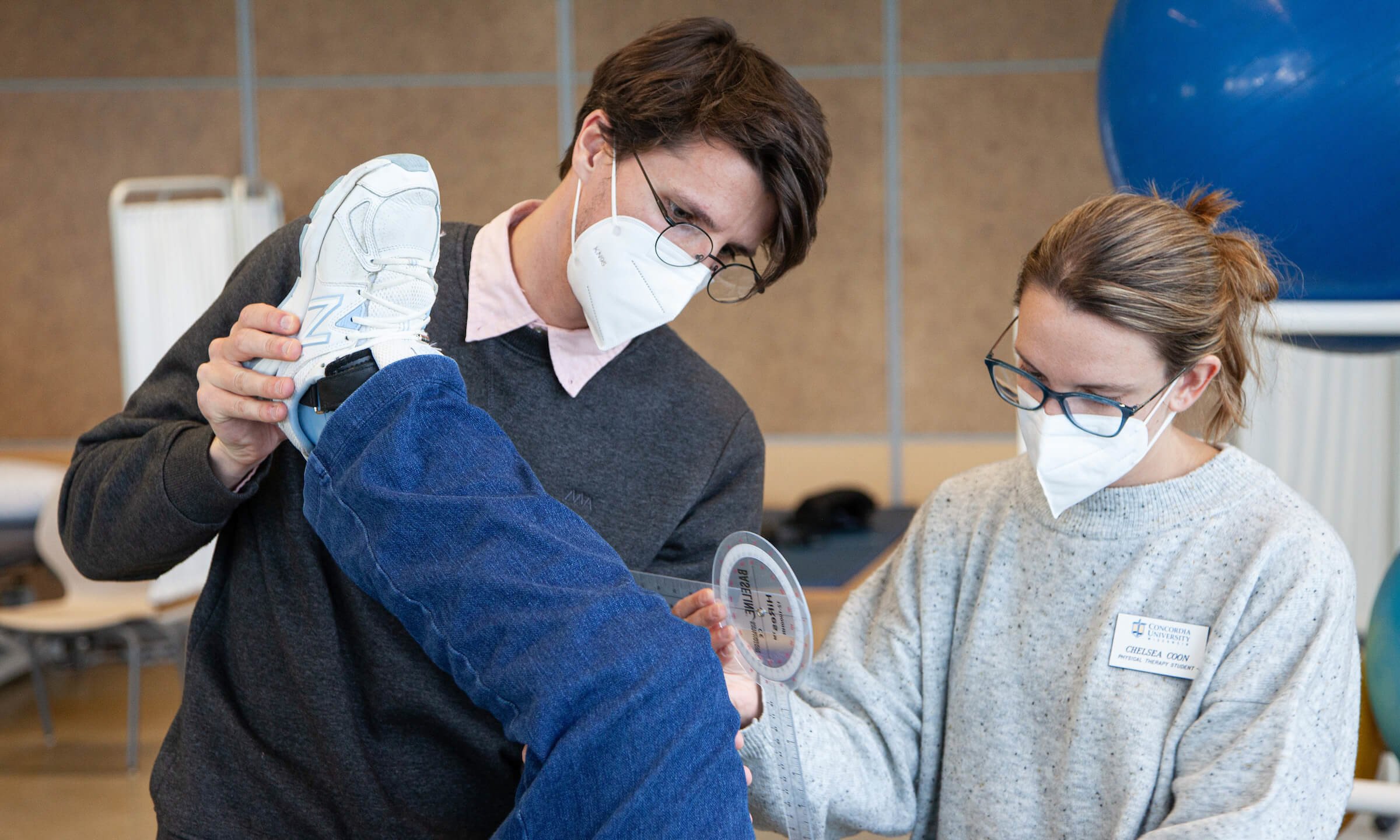
Bethesda College students receive individualized wellness assessments and plans, courtesy of CUW physical therapy and athletic training students.
There are distinct advantages that come with having more than a dozen health care disciplines under one roof.
Those who choose to enroll in one of CUW’s many health care programs regularly experience these advantages through the university’s nationally recognized interprofessional education (IPE) program, but recently, Bethesda College students are gleaning some of the benefits as well.
Several CUW students who are majoring in physical therapy and athletic training programs are involved in a wellness program designed to help Bethesda College enrollees take proactive steps to ensure better overall health for themselves. Bethesda College is a two-year post-secondary program for individuals with physical or intellectual disabilities where they live on Concordia’s campus and complete coursework toward an Applied Certificate of Learning.
Bethesda College students are among a population that is statistically at a higher risk for chronic conditions such as high blood pressure or diabetes, explains Stacy Stolzman, PT, PhD, associate professor of physical therapy. Additionally, some of the Bethesda students face physical limitations that prohibit regular participation in physical activity and certain exercises that could reduce the occurrence of specific adverse health conditions.
For the past two Wednesdays, physical therapy students have met with Bethesda College students to conduct customized wellness assessments. Physical therapy students educated the Bethesda students on their overall wellness and developed individualized wellness plans for each student. The assessments evaluated factors including activity, nutrition, vision, hearing, barriers to being active, sleep habits, and general fitness levels. The assessments will soon be handed off to CUW’s athletic training students who will then work cooperatively with the Bethesda student to implement the individualized wellness plan for each candidate.
“It’s a learning opportunity for both sides,” says Stolzman. “PT and AT students learn what they can do in a community-based setting, and the Bethesda students practice sharing that important health care information in a controlled environment. They learn how to be an advocate for themselves in a health-based setting.”
Want in?
Learn more about:
View scenes from the Wednesday, Oct. 27 wellness assessment effort below!
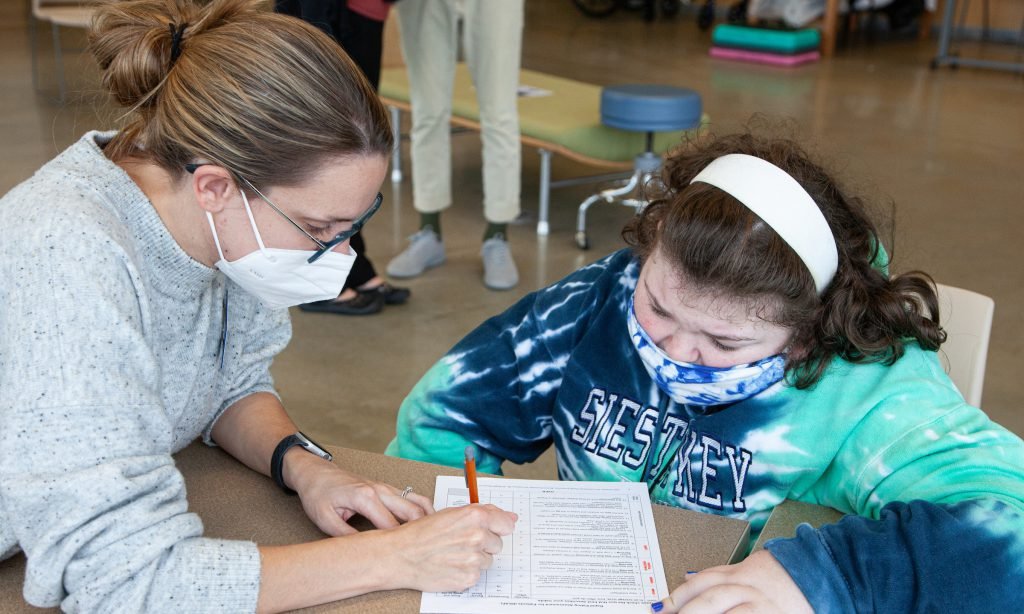
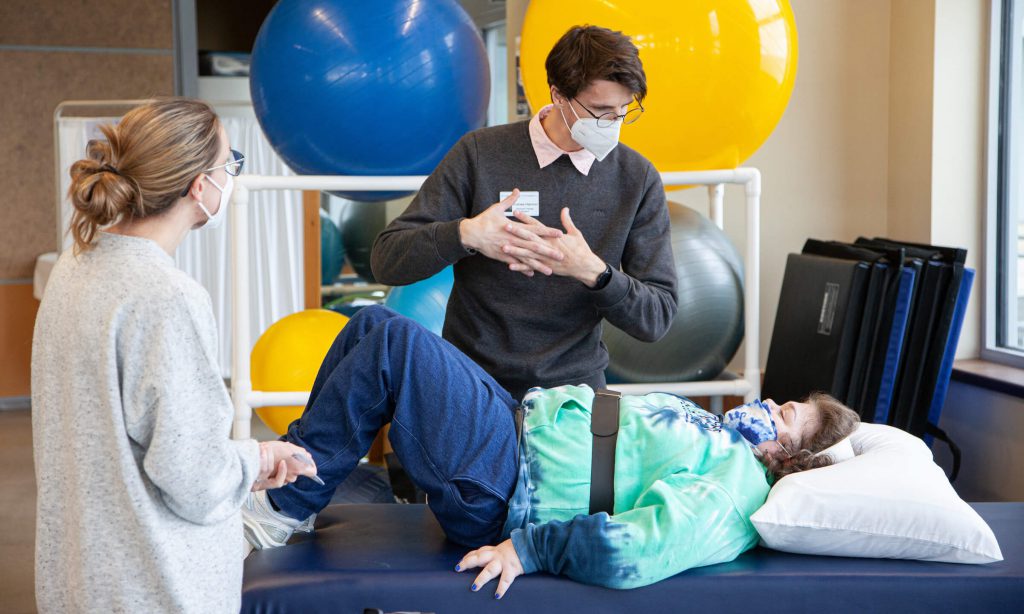
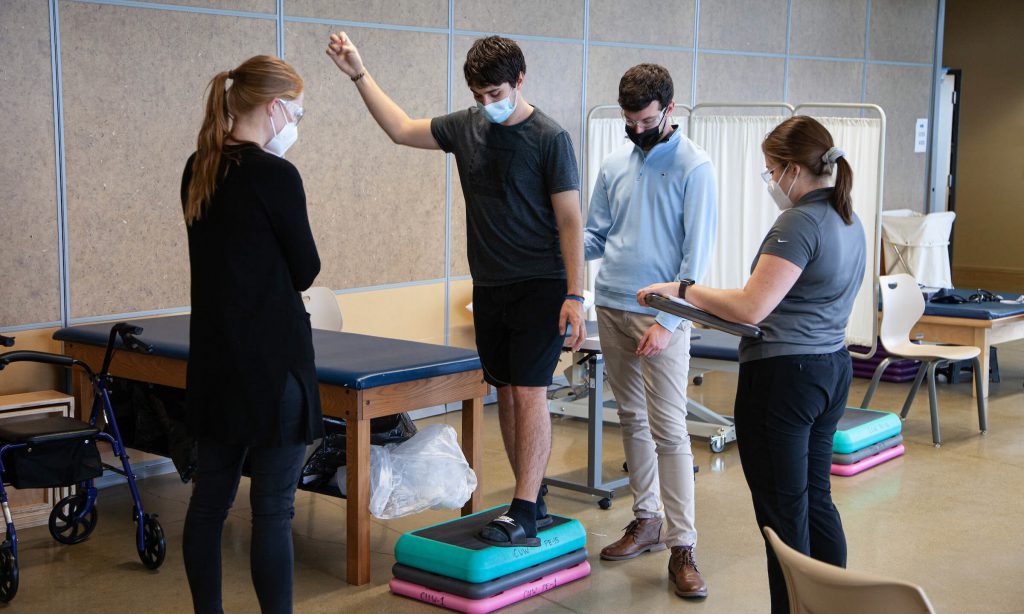
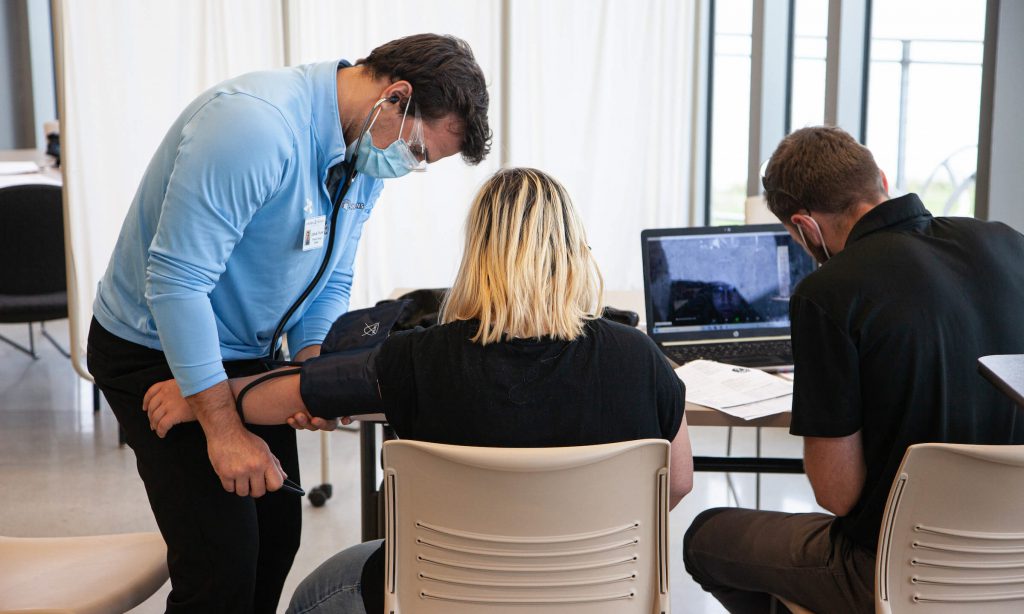
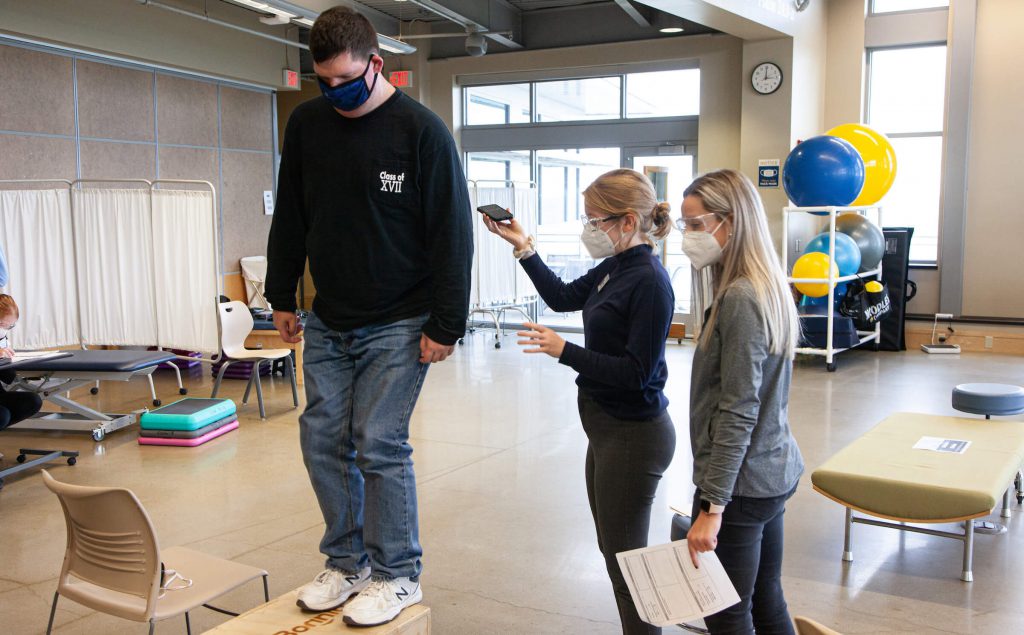
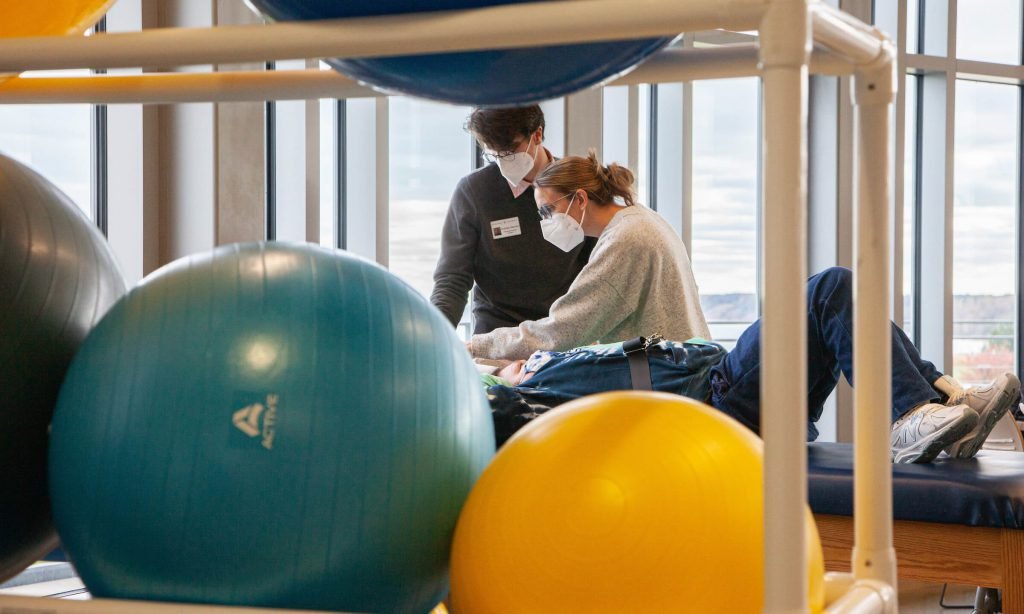
— This story is written by Kali Thiel, director of university communications for Concordia University Wisconsin and Ann Arbor. She may be reached at kali.thiel@cuw.edu or 262-243-2149.
If this story has inspired you, why not explore how you can help further Concordia's mission through giving.